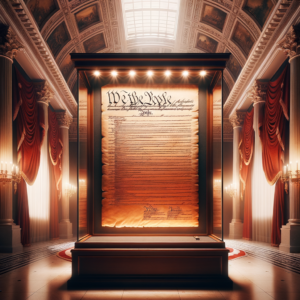Unveiling Colorado's Gun Laws: A Deep Dive into Controversial Regulations
Gun laws in the United States have long been a contentious issue, with states adopting varying regulations that reflect their unique cultural and political landscapes. Colorado, known for its stunning landscapes and outdoor lifestyle, has emerged as a focal point in the national debate over gun control. This article delves into the historical context of Colorado's gun laws, recent legislative changes, their impact on public safety, the most controversial provisions, perspectives from various stakeholders, and what the future may hold for gun legislation in the state.
Understanding the Historical Context of Gun Laws in Colorado: A Comprehensive Overview
Colorado's gun laws have evolved significantly over the years, shaped by a combination of historical events, cultural attitudes, and political pressures. The state's history with firearms dates back to its frontier days, where guns were essential for survival and protection. However, the tragic events of the Columbine High School shooting in 1999 marked a turning point, prompting a reevaluation of gun regulations. In the years that followed, Colorado witnessed a series of mass shootings, including the Aurora theater shooting in 2012, which further intensified the call for stricter gun control measures. This historical backdrop has created a complex legal framework that balances Second Amendment rights with public safety concerns.
Key Legislative Changes: Analyzing Recent Amendments to Colorado's Gun Regulations
In recent years, Colorado has implemented several key legislative changes aimed at addressing gun violence and enhancing public safety. Notably, the passage of Senate Bill 13-197 in 2013 introduced universal background checks for all gun purchases, a significant shift from previous laws that only required checks for sales through licensed dealers. Additionally, the state enacted a high-capacity magazine ban, limiting the number of rounds a firearm can hold. These legislative efforts have sparked heated debates, with proponents arguing that they are necessary to prevent gun violence, while opponents claim they infringe upon individual rights and fail to address the root causes of crime.
The Impact of Colorado's Gun Laws on Public Safety and Crime Rates: A Statistical Review
The effectiveness of Colorado's gun laws in enhancing public safety remains a topic of ongoing analysis. According to data from the Colorado Bureau of Investigation, the implementation of universal background checks has led to a significant increase in the number of background checks conducted, with over 1.2 million checks performed in 2020 alone. However, studies examining the correlation between gun laws and crime rates present mixed results. While some reports indicate a decline in gun-related homicides since the introduction of stricter regulations, others suggest that overall crime rates have remained relatively stable. This statistical ambiguity underscores the complexity of assessing the direct impact of legislation on public safety.
Controversial Provisions: Examining the Most Debated Aspects of Colorado's Gun Laws
Among the various provisions in Colorado's gun laws, several have sparked intense debate and controversy. The high-capacity magazine ban, for instance, has faced legal challenges from gun rights advocates who argue that it violates their constitutional rights. Additionally, the "red flag" law, which allows law enforcement to temporarily seize firearms from individuals deemed a threat to themselves or others, has raised concerns about due process and potential abuse. These contentious provisions highlight the ongoing struggle to find a balance between protecting public safety and preserving individual liberties, making Colorado a microcosm of the national gun control debate.
Perspectives from Stakeholders: Voices from Lawmakers, Advocates, and Citizens
The discourse surrounding Colorado's gun laws is enriched by diverse perspectives from lawmakers, advocacy groups, and citizens. Proponents of stricter regulations, including organizations like Everytown for Gun Safety, argue that comprehensive background checks and restrictions on high-capacity magazines are essential to reducing gun violence. Conversely, gun rights advocates, such as the National Rifle Association, contend that these laws disproportionately affect law-abiding citizens and do little to deter criminals. Citizens are equally divided, with many expressing concerns about personal safety and the potential for government overreach. This multifaceted dialogue reflects the deep-seated emotions and convictions surrounding the issue of gun control in Colorado.
Future Directions: What Lies Ahead for Gun Legislation in Colorado? A Predictive Analysis
Looking ahead, the future of gun legislation in Colorado remains uncertain, influenced by shifting political dynamics and public sentiment. As the state continues to grapple with the consequences of gun violence, lawmakers may face increasing pressure to either tighten regulations further or roll back existing laws. The upcoming elections could play a pivotal role in shaping the legislative landscape, with candidates' positions on gun control likely to resonate with voters. Additionally, ongoing legal challenges to controversial provisions may prompt further judicial scrutiny, potentially leading to significant changes in the state's gun laws. As the national conversation on gun control evolves, Colorado will undoubtedly remain a critical battleground for the ongoing debate.
In conclusion, Colorado's gun laws represent a complex interplay of historical context, legislative changes, public safety concerns, and passionate advocacy on both sides of the debate. As the state navigates the challenges of gun violence and individual rights, the future of its gun regulations will continue to be a focal point of discussion and action. The ongoing dialogue among stakeholders, coupled with evolving public attitudes, will shape the trajectory of gun legislation in Colorado, making it a critical area to watch in the coming years.
